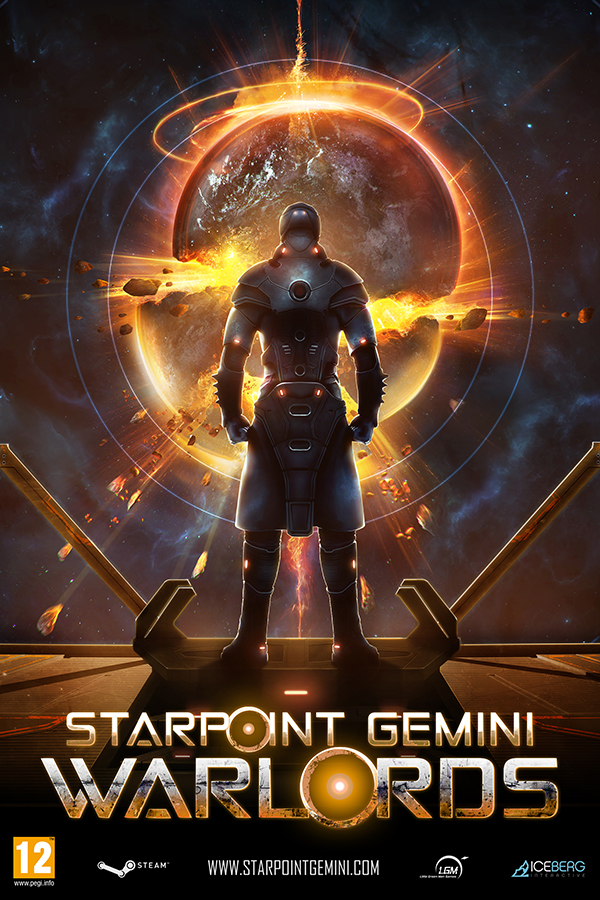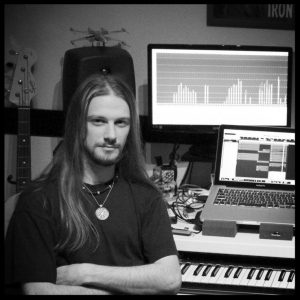Nikola Jeremic on Composing for Starpoint Gemini Warlords in Studio One
[Nikola Jeremic is a longtime PreSonus user, fan, and all-around good friend to the company. He’s written outstanding blog pieces for us in the past, and this is no exception! Today he sheds some light on the oft-misunderstood process of music and audio for computer games, in particular, the just-released science fiction epic “Starpoint Gemini Warlords.”]
How is doing music for games different than doing music for film or TV? What features in Studio One make it particularly well-suited for this application? 
Doing music for games is technically a completely different process than composing for film or TV, because the music in video games is non-linear and interactive, unlike on films and TV. When you compose a cue for film or TV series, you are limited to the timeline of that particular scene, and you have to sync everything to fit in that particular timeline. In the game, the music needs to follow the decisions of the player and fit itself to the various situations the players will get into. That is why I compose a cue for a game in segments. In other words, I create a piece of music that can be divided into looped 8-16 bars parts that can be interchanged inside the audio middleware and each cue has a short ending stinger that can be triggered at any point to end the music cue. This idea is best applied to big action sequences and boss fights. When it comes to ambient atmospheric music, it’s fairly similar, but sometimes it’s not needed to be looped, and you can just transition from one ambient track to another, because I usually compose them in the same key, or I at least make them start and end on the same note for easier transition. That’s the approach I used for Starpoint Gemini Warlords for example.
You’ve been using Studio One for a long time. What are some of the more recent features that you found yourself using during the scoring of Starpoint Gemini Warlords?
Scratch Pads are hands down THE BEST idea ever! I love having the option of being free to experiment and change the arrangement of a cue in a single project that’s opened. It is very useful when I want to create different versions of one track to test how it sounds in different variations. I also love the fact that no matter how many scratch pads you have opened, everything is mixed in the same mix window, so I can bounce different versions very easily and quickly send them off to the developer for listening. I have to say that Studio One Mixer is absolutely the finest and probably the most respected mixing engine out there today. I have a lot of DAWs that I use for composing when collaborating with other people on projects, but I ALWAYS mix my tracks in Studio One. Project page is also awesome, especially when I need to deliver a big amount of mastered tracks to a client and I need to make sure they all sound the same and have the same levels. It’s just amazing, and the fact that I can quickly take care of meta-tags and add album art cover is really cool. The official soundtrack for Starpoint Gemini Warlords is being prepared in Project page, and it makes my life a whole lot easier. I also love the fact that it has all the needed metering in a single window, so I don’t have to load other plugins and use up my CPU. Bouncing in place and converting tracks in project pool is also a feature I use a lot. Creating FX chains with various plugins has made my mixing and sound designing process lightspeed faster, because I can always recall a preset I have created and use it over and over again no matter what plugins I have in the chain. Mojito is still my favorite go-to synth for bass lines. I generally love the sleek and clean look of Studio One interface and its plugins, because it makes my job a lost faster and easier to do without the need to think about “ooh what does this button do?” or spend a lot of time in sub-menus to find the option I need.
Do you use the Notion integration?
Yes I do. Not always, but I most of the time when I am working on piano and orchestral pieces, I always check my score sheet with Notion. What I’d love to see in the future is having Notion editor as an actual part of Studio One Pro. For example, when you open up a midi editor, you can also switch to Notion editor in the same window and tweak the notes on the staff.
Does your score consist of recordings of live instruments or are you using virtual instruments exclusively? If so, which ones?
The score for Starpoint Gemini Warlords consists of both virtual and live instruments. All of the guitar and bass parts are recorded via my FireStudio Project interface, and I also recorded my external hardware synths through FireStudio. This is mostly synth-oriented soundtrack that pays the homage to some of our favorite games and sci-fi franchises. My main synths here were my hardware synths Yamaha DX7 and KORG Volca Bass and Volca Keys, and all of them were processed through my guitar pedals, but regarding the software synths, I used Arturia V collection (mostly MiniMoog V, CS-80 V, ARP 2600 V, and Modular V) and U-He Zebra 2. I also used Mojito for basses and Mai Tai for some pad and drone sounds that were later processed via different FX plugins.
As Starpoint Gemini Warlords is clearly a Space Opera of sorts, do you take any inspiration from John Williams’ use of leitmotif in Star Wars? Any other musical influences you’d care to talk about?
What I love about Little Green Men studio (the developers of the game) is that it’s a group of fanboys and fangirls and it was a lot of fun at brainstorming meetings regarding the soundtrack for the game. Everybody was into sci-fi music and everyone has their own favorite franchises, so I had to do a lot of research and take a listen of various sci-fi game and film soundtracks. There were no traditional leitmotifs for characters, instead we decided to represent each sector in the game with a different melodic theme based on what usually goes down there, so for example more friendly sectors have some light evocative music, alien sectors are more mysterious and feature elven type of vocals and exotic woodwind instruments, while pirate and outlaw sectors are very dark and aggressive in sounds. The biggest inspiration came from video game soundtracks such as Homeworld, EvE Online (I’d love to score that one in the future), Mass Effect, Deus Ex The Human Revolution, and Battlestar Galactica TV series.
Any advice to share for musicians and producers who want to get into game audio or music but don’t know where to start? 
First thing I suggest you do is to join audio societies such as AES (Audio Engineering Society), G.A.N.G. (Game Audio Network Guild), and visit conferences such as GDC (Game Developers Conference) and GamesoundCon. You will meet a lot of people from the industry, and they will all be more than happy to share knowledge and forward you to other people as well. Read books on game audio from publishers like Focal Press for example, I know that helped me a lot. You can always look for some smaller mobile gaming developers out there in your local communities and get in touch with them as well. And the most important thing of all is to learn your craft and learn it good. Don’t get overwhelmed by this or that plugin that’s newest on the market or whatever. Get a set of tools that you like and learn them well inside and out. You will be amazed by how easily you can get great results with bundled plugins that come with your DAW. I still use my Studio One Pro EQ and Compressor most of the time for sampled stuff. Create your own sounds from the stuff that you have. A developer will always learn to appreciate more the fact that you took your sweet time to create something original that’s only for them, than sending them something created with commercial instruments libraries that everyone uses.
Links: